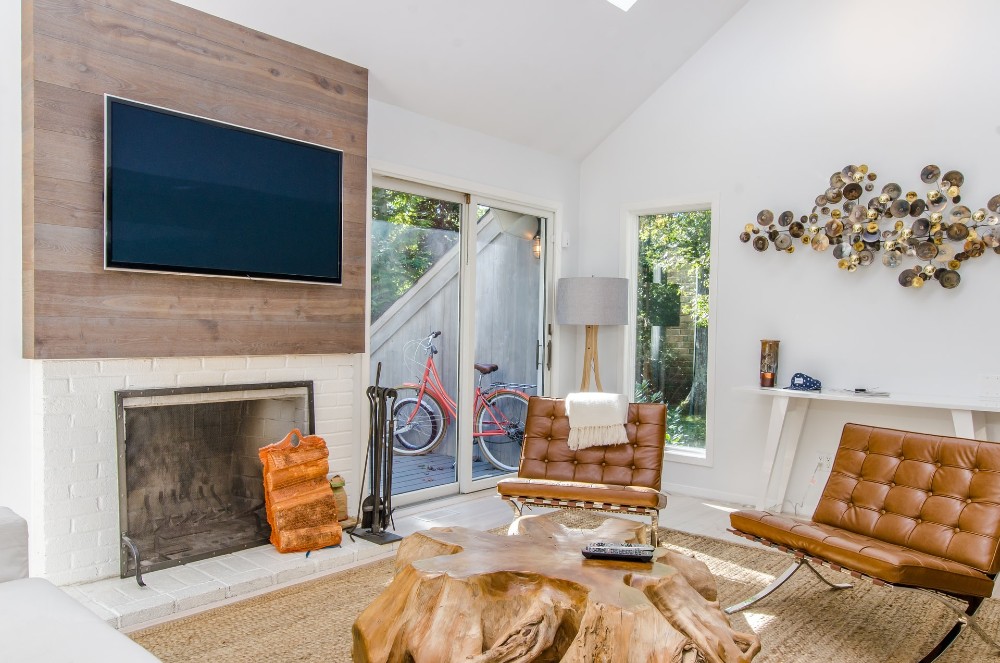A quick overview
Home inspections can be daunting, but once you know what the inspectors are looking for, you can do your own checks and repairs beforehand to make the process quicker and easier.
Main topics
When you’re selling your home, it’s important to be aware that a home inspection will be conducted once someone is interested in buying your home. Don’t be nervous, home inspections are routine procedures and there are ways of making sure that your home passes the inspection.
Remember, no house is perfect, and the best thing to do is prepare your home as best you can before the inspection and learn about what to expect so there are no surprises.
The ins and outs of home inspections
Home inspections are conducted for the purpose of finding anything that is deficient, unsafe or not working correctly. It is a visual observation done by an inspector who makes sure that a home meets the standards according to the state, for health, safety or mechanical issues.
There are two types of home inspections that can be done, the first is a buyer’s inspection and the second is a seller’s inspection. The buyer’s inspection is done once a buyer has made an offer on a home, before the sale is closed. If any issues come to light from the home inspection, the buyer may wish to renegotiate their offer or request that repairs be made, before they close on the home.
A seller’s home inspection is done before a house is even listed, and this is usually done to save time and give seller’s a head start on repairing anything that may need it, so that they can close the sale as quickly as possible.

How does a home inspection work?
For an average sized home, a home inspection will take a few hours and the report will then take about 3 to 4 days. Whoever arranged the inspection should be present when the inspector is there. Inspectors are looking for things like: water damage, structural problems, plumbing issues, insect or pest infestations, the HVAC system being in working order, whether the roof is old or damaged, and what the electrical system is like.
You can rest assured that home inspectors aren’t interested in your home’s aesthetics and if a defect isn’t impacting the home’s value or livability, it may not need to be fixed, for example wallpaper or paint.
10 tips to pass a home inspection
1. Honesty is the best policy
Being honest with the inspector is imperative to this process. Whether you are asked any questions about any problems with your home or not, it’s important to be upfront about your home’s defects. If you aren’t, you could run the risk of losing the sale by coming across as dishonest to both the buyer and the inspector, even if your home passes the inspection.
2. Clear up the clutter
You’ll need to do to this anyway if you’re moving, so it’s a good idea to get started early, because the inspector will need to get access to different areas of your home and places like basements, attics and spare rooms are known to be cluttered. If an inspector cannot get access to an area of your home due to clutter, they will need to make a note that they couldn’t inspect that area, which of course doesn’t look good on your inspection. So, declutter early, and make sure that the inspector can get into any area of your home that they might need to.
3. Check the roof and foundation
Before your home gets inspected, make sure to check your roof and foundations. These are two of the most expensive areas of repair in your home, so if you can find out beforehand abut any potential repairs, you can begin the process by contacting a contractor to give you more information on the seriousness of the problem, along with a quote.
If the repairs are purely cosmetic and won’t affect the home in any major way, you may get away with not having to fix them. If not, at least you have time to get started on repairing it, and you can be open about this with the buyer as well.

4. Double check your insulation
Home inspectors will check that your home is adequately insulated so it’s a good idea to check the state of your insulation before the inspection. Issues with insulation can drive up gas bills and cause other HVAC issues, so insulation is an important aspect to check. You can do this by checking the air flow around your home, to make sure that no air is coming in and out of your home at a rapid rate. Doors and windows are the most obvious places that need to be sealed properly.
5. Hire an electrician
Getting a professional to check all your electrics can be invaluable, however before you do this you can also do some simple checks yourself. Such as checking that all light bulbs are working and replacing ones that aren’t, while checking all light switches. An electrician will be necessary to check your circuit breakers and wiring, to make sure that it’s up to code. This is a common area for homes to fail on home inspections, so this extra step can save you from a major headache to sort out after your home inspection.

6. Run your water
Go around your home and run your taps, baths and showers to make sure that your water is running correctly and there are no leaks or blockages anywhere. You can clear any minor clogs with drain cleaner before your inspection, and you can also use this as an opportunity to check for any water leaks or drainage issues inside or outside your home. These would of course need a major repair job if there was an issue found, so it’s best to get on top of this sooner rather than later.
7. Revisit your curb appeal
Take another look at your home’s exterior and make sure that its curb appeal is the best it can be. Not only is this helpful towards selling your home, but it will also be something the inspector will check. Things like landscaping, driveways, fences, sidewalks and windows, are also covered in the inspection. So, make sure to check all of these before your inspection takes place.

8. Get your documents ready
Gather all your maintenance and repair documentation that you have from any jobs done on your home, particularly any recent repairs. This can include any insurance claims that were done too. This will give the inspector a good idea of what’s been done to the house and make the buyer aware of the fact that repairs have been made and maintenance has been done. This should garner trust with the buyer and help the inspection go quicker and smoother.
9. Uncover any mold
Hidden mold can be a major problem if its discovered in a home inspection, and can be costly to take care of if it’s an underlying issue around the house. Your first sign of mold would be a musty odor in your home, and then the obvious visible signs of mold. The best way to remedy mold issues are to make sure that your home doesn’t have leaks anywhere, or gutters that don’t function correctly. You’ll also need to make sure that the correct humidity levels are being maintained in the house.
10. Get rid of pests
There’s nothing more likely to send a potential buyer heading for the hills than a pest infestation. Particularly termites and other wood-eating insects because they can cause major structural damage if they haven’t been treated. You can hire a professional pest company to do these checks for you before the home inspection and treat your home, then supply the inspector with a certificate.
Now that you know what a home inspection entails, you’ll know what to expect when the inspector comes, and you can get prepared ahead of time so that your home inspection process can be smooth sailing. Click here to check out our ultimate home inspection checklist.

